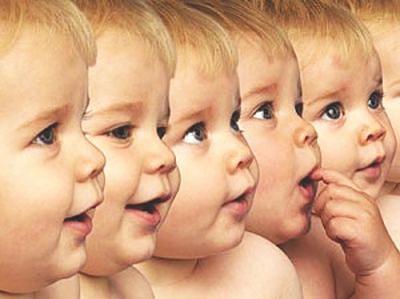Cloning a lost child

Source: Science photo library
It is said that cloning a human being effectively means making an identical twin, and doctors would therefore simply be copying what nature has already produced. So any attempt to clone a human would raise a host of complex ethical issues. The biologists claimed people would soon overcome their concerns if the technique became medically useful. It may be mentioned that after the birth of Louise Brown, the first test tube baby, in-vitro fertilisation became widely accepted. But before was first developed, this type of fertilisation was regarded with extreme suspicion. We have learnt from a recent report of this daily that Sir John Gurdon, whose work -- cloning frogs in the 1950s and 60s led to the later creation of Dolly, the sheep by Edinburgh scientists in 1996, regularly asks his audience during his public lecture if they would be in favour of allowing parents, who are no longer fertile, to create another copy of their deceased child using the mother's eggs and skin cells from the first child, assuming the technique was safe and effective. The average vote on that is 60 percent in favour. The reasons for “no†are usually that the new child would feel they are some sort of a replacement for something and not valid in their own right.
However, it seems it is an encouraging news for many that a British scientist who won this year's Nobel Prize for medicine has predicted that parents who lost children in accidents may be able to clone 'copies' to replace them within 50 years. And hopefully people will not be against human cloning for medical use.

 For all latest news, follow The Daily Star's Google News channel.
For all latest news, follow The Daily Star's Google News channel. 



Comments